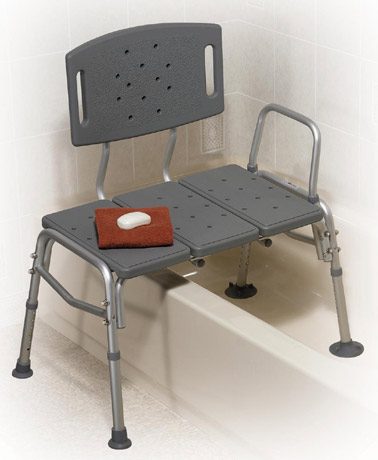Please choose a body region on the right for you to pin point the problem area of your body.

Shop by Condition

Shop by Brand
When a relative or friend is returning home after a stay in the hospital, you need to prepare your house to make sure that it is much easier and safer for them. It is important that your home is comfortable because they need time to recover and recuperate. A doctor or physical therapist can help guide you on how to appropriately prepare your home for an outpatient.

If their surgery was planned, it can give you enough time to prepare your house in advance. If their stay in the hospital was unplanned, you can have your friends or family members do what is required. A sudden hospitalization can give you very less time to prep your home, but you can do what is immediately required. This article will help you with some great ideas on how you can prepare your home so an outpatient can have a safe and healthy stay.
The most important thing for an outpatient is ease of access. You have to ready your home in such a fashion that everything they need is easy to reach and preferably on the same floor as them. Here are some tips on how you can make it easy for them.
Your relative or friend could have just had surgery and can be incapable of performing simple daily tasks like bathing, cooking, using the bathroom, going to see the doctor, running errands, exercising, etc. by themselves. Outpatients require the most amount of attention and assistance during the first one or two weeks after hospitalization. If you are unable to be present all the time and provide the necessary assistance, you can always reach out to your health care provider and have a professional caregiver attend to the outpatient. However, there are some items that you can buy and install in your home that can make it easier for the outpatient. They are:
While you are readying your home for the outpatient, it is important that you do not forget about the bathroom. Here are some steps you can take to prepare your bathroom.
|
|
One major safety tip you need to keep in mind while preparing your home is to prevent falls. Tripping hazards can be very dangerous. Here is what you should do to prevent falls in your home.
Your home will become a sanctuary for your relative or friend during their recover time, so it is essential that you make it as comfortable as possible for them. The most important factor is that you remain supportive and helpful during this time since this is when they will need you the most.
View All Bathroom Safety Products
View All Fall Prevention Products
| |
|
Related Articles
< Unintentional Death From Bed Falls
Get $10 off your next order when you sign up to receive our email newsletter.*
Simply enter your email address below!
*Minimum order value of $100. Valid email address to qualify.








